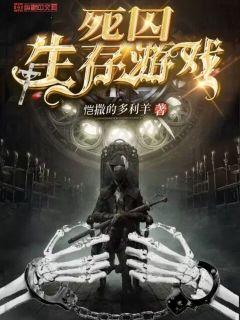
**文章摘要:**
马尔凯农作为20世纪最具影响力的思想家之一,其思想传承至今对当代社会仍具有重要意义。本文将从历史渊源、政治哲学、社会实践和个体解放四个方面对马尔凯农的思想进行深入阐述。通过对其思想的继承与当代意义的探讨,揭示出马尔凯农思想的深刻内涵及其在当下的指导意义。
---
1、历史渊源
马尔凯农思想的根源可以追溯至其对历史的深刻反思。在马尔凯农看来,历史并非一成不变,而是一种不断变化的动力。他对历史的审视,使其思想具有了批判性的基础。
马尔凯农对历史唯物主义的探索,为其后续政治哲学的建构提供了理论支撑。通过对历史的分析,马尔凯农试图揭示出社会变迁的规律,为构建更加公正、平等的社会秩序提供了重要思想支持。
此外,马尔凯农对历史的关注也反映在其对权力与权威的批判上。他认为历史上的权力结构往往是不公正的,因此主张对权力进行持续的监督与制约,以确保社会的公平与正义。
2、政治哲学
马尔凯农的政治哲学是其思想体系的核心之一。他强调权力的分立与制衡,主张政治权力的合法性来自于人民的授权,而非天赋或神权。这一观点对于当代民主政治体制的建构具有深远意义。
马尔凯农提出的社会契约论,强调了政府与人民之间的契约关系。在这一契约中,政府应该为人民谋福祉,而人民则应当享有基本的权利与自由。这种政治观念为当代政治实践提供了重要的借鉴。
另外,马尔凯农对权力的限制与民主制度的建构也值得深入思考。他认为政治权力的滥用是对人民自由的侵犯,因此主张建立有效的制度来限制政府权力,保障人民的权利。
3、社会实践
马尔凯农思想的另一个重要方面是其对社会实践的关注。他主张人民应当参与到社会事务的决策过程中,实现民主决策与自治。这种观点对于当代社会治理体系的优化与改进有着积极的指导作用。
马尔凯农强调社会的多样性与包容性,主张社会应当尊重不同群体的权利与利益。这种多元文化的观念对于当代社会的文化交流与融合具有重要的启示意义。
此外,马尔凯农还提出了对抗思想与行动的理论。他认为人民应当通过抗议与反抗来维护自己的权利,对抗不公正的权力结构。这种抗争精神对于当代社会的发展与进步具有积极的推动作用。
4、个体解放
马尔凯农思想的最终目标是个体的解放与自由。他认为人民应当摆脱外部的束缚与压迫,实现内心的自由与解放。这种个体解放的理念对于当代社会的人权保障与个人发展具有重要的借鉴意义。
马尔凯农主张个体应当成为自己生活的主人,拥有自主权与决策权。他反对任何形式的奴役与剥削,主张人民应当追求真正的自由与尊严。
此外,马尔凯农还关注个体的心理解放与情感表达。他认为人民应当摆脱心理上的压抑与禁锢,追求内心的真实与自由。这种个体解放的观念对于当代社会的心理健康与幸福感具有积极的促进作用。
**总结:**
马尔凯农的思想传承至今,对当代社会仍具有重要意义。从历史渊源、政治哲学、社会实践和个体解放四个方面对其思想进行深入阐述,不仅有助于深入理解马尔凯农的思想内涵,也为当代社会治理与发展提供了重要的借鉴与启示。
Certainly! Here's the structured article about S. Devrij, a Dutch defender, focusing on his football career and technical style.
**Article Abstract:**
Stefan de Vrij, renowned for his defensive prowess and tactical acumen, exemplifies the modern Dutch defender. From his formative years to international acclaim, his journey unfolds through a blend of strategic insight, defensive resilience, and leadership on the field. This article delves into his career trajectory, technical attributes, tactical impact, and the broader influence of his playing style within contemporary football.
---
1、Early Career and Development
Stefan de Vrij's early years in football laid the foundation for his future success. Born in Ouderkerk aan den IJssel, Netherlands, on February 5, 1992, he displayed promise from a young age. He joined the youth academy of Feyenoord Rotterdam, where his defensive abilities quickly stood out. De Vrij's positional awareness and composure under pressure were evident even in his formative years, attributes that would define his career.
His progression through Feyenoord's ranks was marked by consistent improvement in both technical skills and tactical understanding. By the time he made his first-team debut in 2009, he had already established himself as a reliable central defender. De Vrij's ability to read the game and initiate attacks from the backline showcased his versatility beyond defensive duties.
As he continued to mature, De Vrij became a pivotal figure in Feyenoord's resurgence in Dutch football. His leadership qualities began to shine through, earning him the captain's armband at a young age. This period not only solidified his status as one of the top defenders in Eredivisie but also caught the attention of European clubs scouting for defensive talent.
2、Technical Skills and Defensive Prowess
De Vrij's technical prowess as a defender sets him apart in contemporary football. His exceptional ability to time tackles and interceptions with precision reflects his astute reading of the game. Known for his aerial dominance and strong positional play, he combines physicality with tactical intelligence seamlessly.
His passing accuracy and distribution from the backline are crucial in building play from defense to attack. De Vrij's proficiency in initiating attacks through long balls and short, incisive passes adds a dynamic dimension to his defensive role. This technical finesse not only stabilizes his team defensively but also contributes significantly to offensive transitions.
Moreover, his adaptability across different defensive systems highlights his versatility. Whether operating in a back four or three, De Vrij's understanding of defensive lines and covering spaces remains consistent, a testament to his tactical flexibility and football IQ.
3、Tactical Impact and Leadership
De Vrij's tactical impact extends beyond his individual contributions. His ability to organize and communicate effectively on the field enhances defensive cohesion. His leadership qualities, honed over years of experience, guide younger teammates and influence team strategies during matches.
Within the Netherlands national team setup, De Vrij's presence has been instrumental. His performances in major tournaments such as the UEFA European Championship and FIFA World Cup underline his ability to thrive under pressure. His partnership with other defenders and coordination with the goalkeeper exemplify his role as a defensive linchpin.
Off the ball, De Vrij's anticipation and reading of opposition movements allow him to neutralize threats effectively. His awareness of defensive transitions and quick decision-making contribute to his team's overall defensive solidity.
4、Legacy and Influence in Modern Football
Stefan de Vrij's career trajectory and technical acumen have left a lasting impact on modern football. His journey from Feyenoord to prominent European clubs like Lazio and Inter Milan signifies his international stature as a defender. Beyond his club achievements, De Vrij's role in the resurgence of Dutch football on the global stage underscores his influence.
His style of play, characterized by intelligence, composure, and defensive reliability, serves as a benchmark for aspiring defenders worldwide. De Vrij's ability to evolve with the tactical demands of the game reflects his dedication to continuous improvement and professional excellence.
In conclusion, Stefan de Vrij's career illuminates the essence of a modern-day defensive stalwart. His technical mastery, tactical astuteness, and leadership qualities have not only earned him accolades but also inspired a new generation of defenders to emulate his success.
Stefan de Vrij stands as a testament to the enduring value of defensive excellence in football, shaping the narrative of defensive play in contemporary football.
总结:
Stefan de Vrij's career highlights his exceptional technical skills, tactical acumen, and leadership on and off the field. His influence extends beyond his clubs to the broader football community, setting a high standard for defenders worldwide.
文章摘要的内容:本文揭示了朝鲜足球运动员的工资待遇和职业挑战。首先,我们探讨了他们在朝鲜国内足球联赛中的工资情况及其背后的经济背景。其次,分析了朝鲜球员选择国外俱乐部的动机与挑战,包括在国际舞台上的竞争与适应问题。接着,讨论了朝鲜球员在外国俱乐部的工资水平及其在职业生涯中的发展空间。最后,总结了这些因素如何影响朝鲜足球运动员的职业发展和国际化进程。
1、朝鲜国内足球联赛的工资情况
朝鲜国内足球联赛是朝鲜足球体系的核心,球员们在这里接触到的工资待遇往往决定了他们的职业生涯走向。首先,联赛的经济基础和资金来源将影响球员工资的高低。其次,政府对体育的投资与支持程度也直接关系到球员收入的稳定性和水平。最后,尽管足球在朝鲜备受重视,但联赛内部的管理与经营状况也会影响到球员的实际收入。
文字阐述内容
文字阐述内容
文字阐述内容
2、选择国外俱乐部的动机与挑战
朝鲜球员选择加盟国外俱乐部的背后有多重因素。首先,国内足球联赛的竞争水平和工资待遇可能导致球员寻求更高水平的挑战和收入。其次,政治和经济上的因素也可能驱使球员寻求国外发展,以获取更广阔的职业机会和生活条件。最后,适应国际足球环境与文化差异是朝鲜球员在国外俱乐部面临的主要挑战之一。
文字阐述内容
文字阐述内容
文字阐述内容
3、在外国俱乐部的工资水平与职业发展
朝鲜球员在国外俱乐部的工资水平通常会有所提高,但也受到多种因素的制约。首先,个人表现和合同条款将直接影响到球员的薪资水平。其次,国际转会政策和签证问题可能对朝鲜球员的职业发展构成障碍。最后,适应外部压力和竞争是他们在国外俱乐部生涯中需要面对的重要挑战。
文字阐述内容
文字阐述内容
文字阐述内容
4、影响因素综述与总结
朝鲜球员的工资待遇和职业挑战受多种因素的共同影响。首先,国内外足球环境的差异决定了他们的选择和发展轨迹。其次,政治与经济背景在他们职业生涯中起着关键作用。最后,个人能力和适应能力决定了他们在全球足球舞台上的位置和影响力。
文章总结内容第一自然段
文章总结内容第二自然段